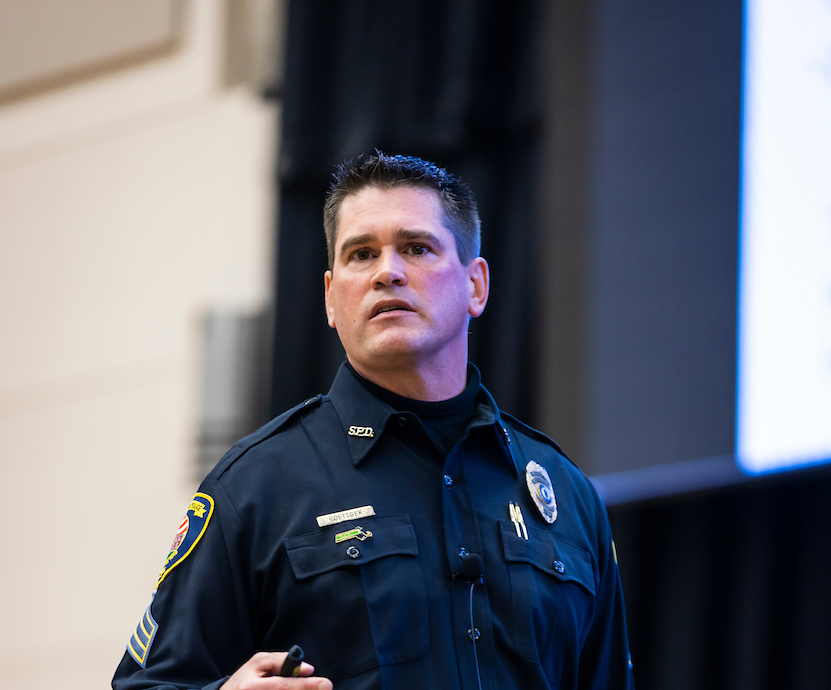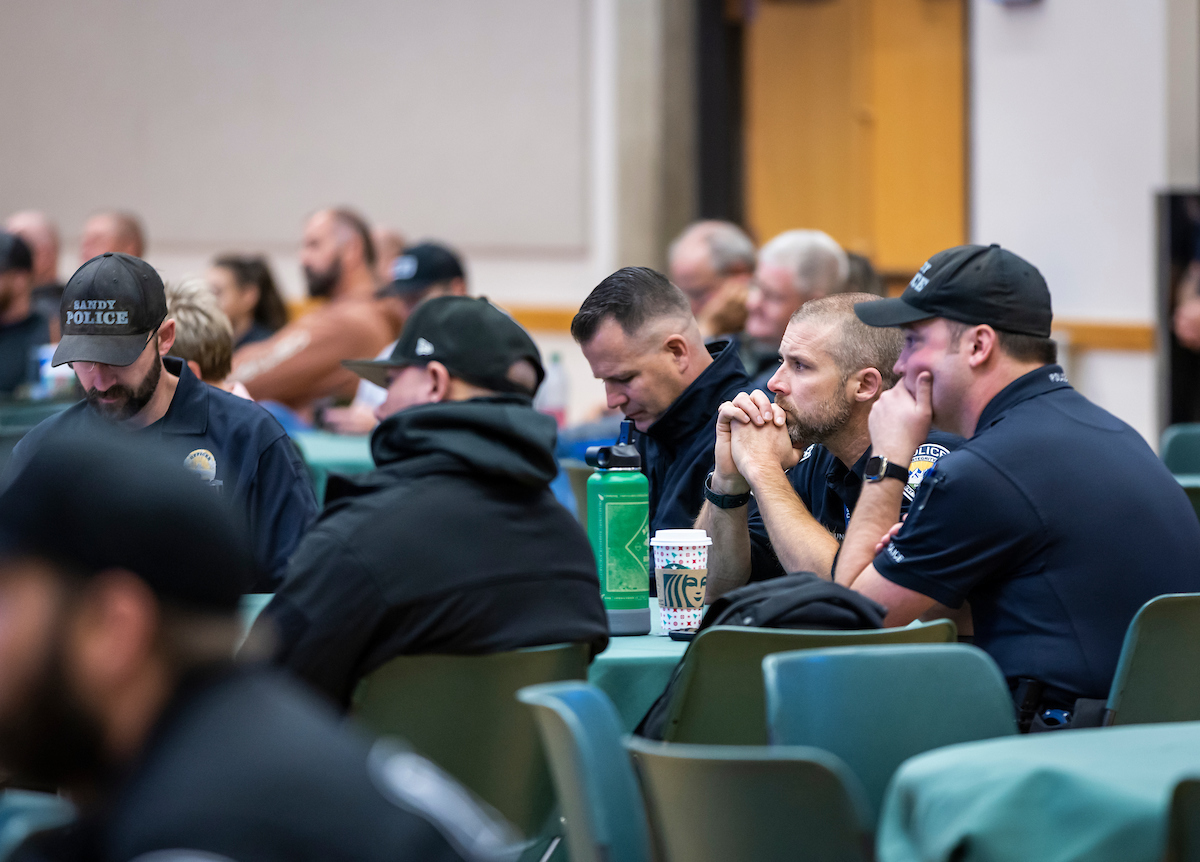Police Officers and First Responders encounter people in highly stressful situations and respond quickly to ensure the well-being of individuals. With the prevalence of autism now estimated at 1 in 46 Utah children, it is critical to provide those who serve the community with a practical understanding of best practices when responding to a crisis involving a person with autism. It can mean the difference between safety and harm.
The Melisa Nellesen Center has partnered with Autism Law Enforcement and Education Coalition (ALEC) through Lifeworks to establish a Utah chapter of qualified police and first responder trainers. Our trainers have professional experience in the field as well as personal experience with autism spectrum disorder.

We offer complimentary virtual training for police professionals and first responders, which is offered at a time that works for you. Our trainers are seasoned experts in the law enforcement industry and possess a strong personal understanding of autism spectrum disorder. For more information, feel free to reach out to us at autismcenter@uvu.edu.
You will receive a certificate for this free 3-hour training.

We offer complimentary training for police professionals and first responders, which can be conducted at a location of your preference. Our trainers are seasoned experts in the law enforcement industry and possess a strong personal understanding of autism spectrum disorder. For more information, feel free to reach out to us at autismcenter@uvu.edu.
Autism is an invisible disability and sometimes behavior gets misinterpreted or misunderstood. It might appear someone is more dangerous than they really are if they have a mental illness or autism. This training protects the officers and the families who may one day need help. The more training, exposure and understanding professionals have, the better they can respond and hopefully save lives.
Contact us to learn more at autismcenter@uvu.edu
We can save lives by being prepared to respond quickly and safely in emergency situations.
"There is no visual indication. You have to look at behaviors. That will give a clue how to respond and react." -Tom Sturtevant, associate dean of the College of Health and Public Service at UVU.
"It's so beneficial to the community for officers to know how to help in those situations instead of escalating things." - Sargent Jeremy Jamison
1. REGISTER
Families can register and create an identity profile of their loved ones with the local police department. When you register, and an emergency situation happens, information is immediately available for first responders.
Nearly 50% of children with autism will run away at some point. The more information officers have and the more familiar they are with autism, the safer everyone is. Emergency situations are often literally a matter of life or death.
2. HAVE A POLICE CONTACT
Help your family members interact with police and first responders any chance they can.
Giving your children an opportunity to go to events and meet officers in a fun and safe setting will help your kids be more prepared in an emergency situation. In a crisis, it can be less intimidating to your kids because they have already had exposure to first responders.
3. GET A CARD
Often, interactions with police and first responders can become overwhelming for people with mental illness or autism and that can affect communication. Carry a form of written communication that can be helpful in these situations.
If an adult is on the spectrum, it would be nice to have them put a card in their wallet so that if communication gets difficult, first responders can contact the individual listed on the card.
You can print off your identification card here.